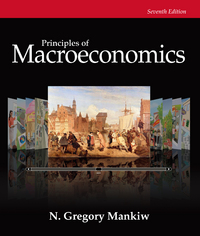Answered step by step
Verified Expert Solution
Question
1 Approved Answer
In 1997 the Kyoto Protocol was passed requiring worldwide cuts in carbon emissions of around 5% compared to the levels of emissions in 1990. However,
In 1997 the Kyoto Protocol was passed requiring worldwide cuts in carbon emissions of around 5% compared to the levels of emissions in 1990. However, developing countries at the time (e.g. China, Mexico and India) objected to this target. Negotiations to replace the Kyoto Protocol with another binding agreement have repeatedly stalled due to developing and developed nations differing as to how emissions should be cut. Which of the following statements are true? Nations should not go ahead with the proposal if the vertically summed MB exceeds the MC of a new agreement. Developing nations' (such as India) refusal to cut emissions can be seen as an example of the free rider problem. Nations should agree to cut emissions to as close to zero as possible because any positive level of emissions is inefficient. Individual nations have an incentive not to cut their emissions as they can freely enjoy the benefits from other nations contributing toward reducing global carbon emissions
Step by Step Solution
There are 3 Steps involved in it
Step: 1

Get Instant Access to Expert-Tailored Solutions
See step-by-step solutions with expert insights and AI powered tools for academic success
Step: 2

Step: 3

Ace Your Homework with AI
Get the answers you need in no time with our AI-driven, step-by-step assistance
Get Started


